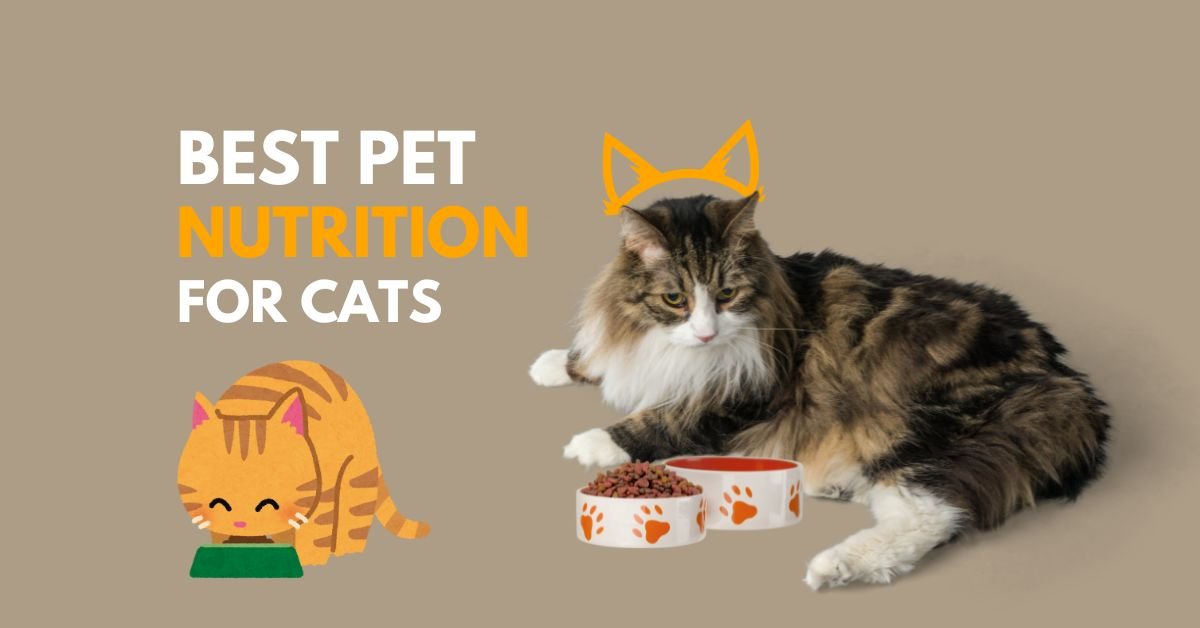Proper nutrition is vital to your cat’s health, ensuring they live a long and healthy life. You can prevent many common health issues by providing a balanced diet tailored to their specific needs. Whether you’re new to cat ownership or have years of experience, understanding the basics of cat nutrition is essential to making informed decisions about your diet.
As obligate carnivores, cats require a diet rich in animal-based proteins to meet their unique nutritional needs. This includes a higher protein intake and essential nutrients like taurine, naturally found in animal tissues. Focusing on these dietary requirements supports your cat’s overall health, energy, and longevity.
Understanding Your Cat’s Nutritional Needs
- High-Quality Protein: Cats thrive on diets rich in high-quality animal protein. Ensure your cat’s food lists a high-quality protein source, such as chicken, turkey, or fish, as the first ingredient. Protein supports muscle development, immune function, and overall vitality.
- Essential Nutrients: Cats require specific nutrients that are not naturally found in plant-based foods. Taurine, an amino acid vital for heart and eye health, and arachidonic acid, a fatty acid essential for skin and coat health, are crucial. These nutrients are naturally present in animal tissues, reinforcing the importance of a meat-based diet.
- Balanced Diet: A balanced cat diet includes a proper mix of proteins, fats, and carbohydrates. While cats primarily need protein and fat, small amounts of carbohydrates can be beneficial. However, avoid foods high in fillers and grains, as they can lead to obesity and other health problems.
Table: Key Nutrients for Cats
| Nutrient | Importance | Sources |
|---|---|---|
| Protein | Supports muscle development and immune function | Chicken, turkey, fish |
| Taurine | Essential for heart health and vision | Animal tissues (meat, fish) |
| Arachidonic Acid | Maintains healthy skin and coat | Animal fats (meat, fish) |
| Omega-3 Fatty Acids | Reduces inflammation and supports joint health | Fish oil, flaxseed |
| Vitamins & Minerals | Supports overall health and immune function | Organ meats, bone meal, supplements |
Choosing High-Quality Cat Food
Avoid Fillers and Artificial Ingredients
When selecting cat food, avoid products with fillers like corn, wheat, and soy, as well as artificial additives and preservatives. These ingredients offer little nutritional value and can contribute to weight gain and other health issues.
Look for AAFCO Approval
Choose cat food that meets the nutritional standards of the Association of American Feed Control Officials (AAFCO). This ensures the food provides a balanced diet with all the nutrients your cat needs.
Wet vs. Dry Food
Incorporate both wet and dry food into your cat’s diet. Damp food provides additional moisture, essential for urinary tract health, while dry food can help maintain dental hygiene. Balance is critical, so offering variety and preventing dietary boredom is necessary.
Feeding Tips and Portion Control
Monitor Portion Sizes
Overfeeding can lead to obesity, a common issue in cats that can result in various health problems. Follow the feeding guidelines on the cat food packaging and adjust portions based on your cat’s age, weight, and activity level.
Establish a Feeding Routine
Cats thrive on routine. Feed your cat at the exact times daily to regulate their metabolism and reduce the risk of overeating.
Hydration is Key
Ensure your cat has constant access to fresh water. Consider using a cat water fountain to encourage them to drink more, as cats are naturally low drinkers.
Recognizing and Managing Food Sensitivities
Identify Symptoms of Food Allergies
Common symptoms of food allergies in cats include vomiting, diarrhoea, and excessive scratching or licking. If you notice these signs, consult your veterinarian to determine the cause and adjust your cat’s diet.
Opt for Hypoallergenic Diets
If your cat has a known food sensitivity, switch to a hypoallergenic diet that avoids common allergens like grains or specific proteins. Many high-quality hypoallergenic cat foods provide balanced nutrition without triggering allergies.
Providing your cat with the best nutrition is one of the most critical aspects of pet care. By understanding their specific dietary needs, choosing high-quality food, and monitoring their portion sizes and overall health, you can ensure that your feline friend leads a healthy and happy life.
Regularly consult your veterinarian to stay informed about the best nutrition practices and adjust your cat’s diet as they age or if their health needs change. By prioritizing their nutrition, you invest in their long-term well-being and happiness.
